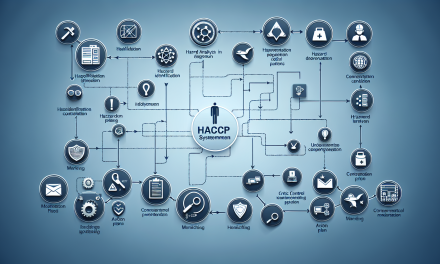Table of Contents
- Introduction
- Why Effective Security Management Matters
- Key Components of Modern Security Management
- Strategies for Effective Security Operations
- The Role of Technology in Security Management
- Essential Skills for Security Managers
- Frequently Asked Questions
- Conclusion
Introduction
In today’s fast-paced world, organizations face a myriad of security challenges. From cyber threats to physical security issues, the landscape is evolving at an unprecedented rate. Therefore, mastering effective security management practices becomes indispensable for safeguarding assets, personnel, and information.
Why Effective Security Management Matters
Once upon a time, organizations approached security management as a mere reactive measure. However, the contemporary landscape demands proactive strategies. By implementing robust security management frameworks, organizations can not only protect their assets but also ensure compliance with regulations and enhance reputational integrity. Moreover, investing in effective security management proves to be beneficial in minimizing financial losses that can result from security breaches.
The Shift to a Proactive Approach
Transitioning from reactive to proactive methodologies in security management lays the groundwork for a more resilient organization. Organizations now focus on risk assessments, vulnerability scans, and security drills. Consequently, this proactive stance enables them to identify potential threats before they escalate into crises.
Key Components of Modern Security Management
Modern security management encompasses various components that, when woven together, create a comprehensive security framework. The key elements include:
Risk Assessment
First and foremost, conducting regular risk assessments proves essential. Understanding potential vulnerabilities allows organizations to prioritize their security efforts effectively. Furthermore, this practice enables them to allocate resources strategically, thus maximizing their defense capabilities.
Incident Response Planning
In addition, a well-crafted incident response plan stands as a pillar of effective security management. Knowing how to respond when security events occur minimizes damage and allows for a swift recovery. Moreover, regular drills can ensure that all personnel are familiar with the procedures, enhancing organizational readiness.
Physical and Cybersecurity Integration
Additionally, integrating physical security measures with cyber defenses significantly strengthens an organization’s security posture. For instance, installing security cameras, access control systems, and cybersecurity software collectively create a fortified environment.
Strategies for Effective Security Operations
Adopting the right strategies can enhance security management processes dramatically. Some of the most effective strategies include:
Training and Awareness
Continuously educating employees about security threats and best practices not only raises awareness but also fosters a culture of security within the organization. Consequently, everyone from the top tier to the frontline staff plays a crucial role in maintaining security.
Regular Reviews and Updates
Moreover, proactively reviewing and updating security policies and procedures ensures that organizations remain adaptable to emerging threats. This adaptability can make the difference between thwarting an attack and suffering a breach.
Leveraging External Expertise
Furthermore, seeking external consultation can provide organizations with valuable insights and expertise. Engaging with specialists allows for an unbiased review of the existing security measures, highlighting areas for improvement.
The Role of Technology in Security Management
As technology advances, so do security threats. Therefore, organizations must leverage the latest technologies to optimize their security operations. Technologies such as artificial intelligence, machine learning, and advanced analytics play pivotal roles in identifying potential threats and automating responses.
AI and Predictive Analytics
Utilizing AI enables organizations to predict and preemptively mitigate risks. Furthermore, predictive analytics, when applied to historical data, can uncover patterns that help in identifying vulnerabilities before they are exploited.
Surveillance and Access Control Systems
In addition, modern surveillance systems equipped with facial recognition technology and advanced access control systems enhance both physical and cybersecurity defenses. These technologies work collaboratively, providing organizations with comprehensive security oversight.
Exploring Advanced Options
To dive deeper into the world of security management, consider exploring the Advanced Security Management & Operations Training Course. This program offers transformative insights and practical knowledge that can empower practitioners in the field.
Essential Skills for Security Managers
Possessing the right skills is integral to effective security management. Key competencies that security managers should cultivate include:
Analytical Skills
Strong analytical skills enable security managers to assess risks and understand complex security landscapes. Furthermore, these skills aid in making informed decisions based on data-driven insights.
Leadership and Communication
Additionally, effective leadership and communication skills foster a collaborative environment. Ensuring that all team members understand their roles in maintaining security heightens the overall effectiveness of the security strategy.
Technical Proficiency
Lastly, a solid grasp of technological tools, platforms, and trends in security management equips managers to make strategic decisions regarding the acquisition and implementation of security technologies.
Frequently Asked Questions
What are the primary responsibilities of a security manager?
A security manager is responsible for developing security policies, conducting risk assessments, overseeing incident response planning, and ensuring adherence to regulations and compliance standards.
How often should organizations conduct security training?
Organizations should conduct security training at least twice a year, with periodic updates or refresher courses in response to emerging threats and changes in policies.
What technologies are most critical for modern security management?
Critical technologies include video surveillance systems, access control systems, intrusion detection systems, and cybersecurity tools such as firewalls and anti-malware software.
Conclusion
In conclusion, effective modern security management and operations require a comprehensive approach that integrates advanced technologies, proactive strategies, and continuous education. As organizations navigate the ever-evolving security landscape, investing in robust security management practices becomes imperative. By adopting a multifaceted strategy, organizations not only protect their assets but also build a culture of security awareness that empowers every employee.





